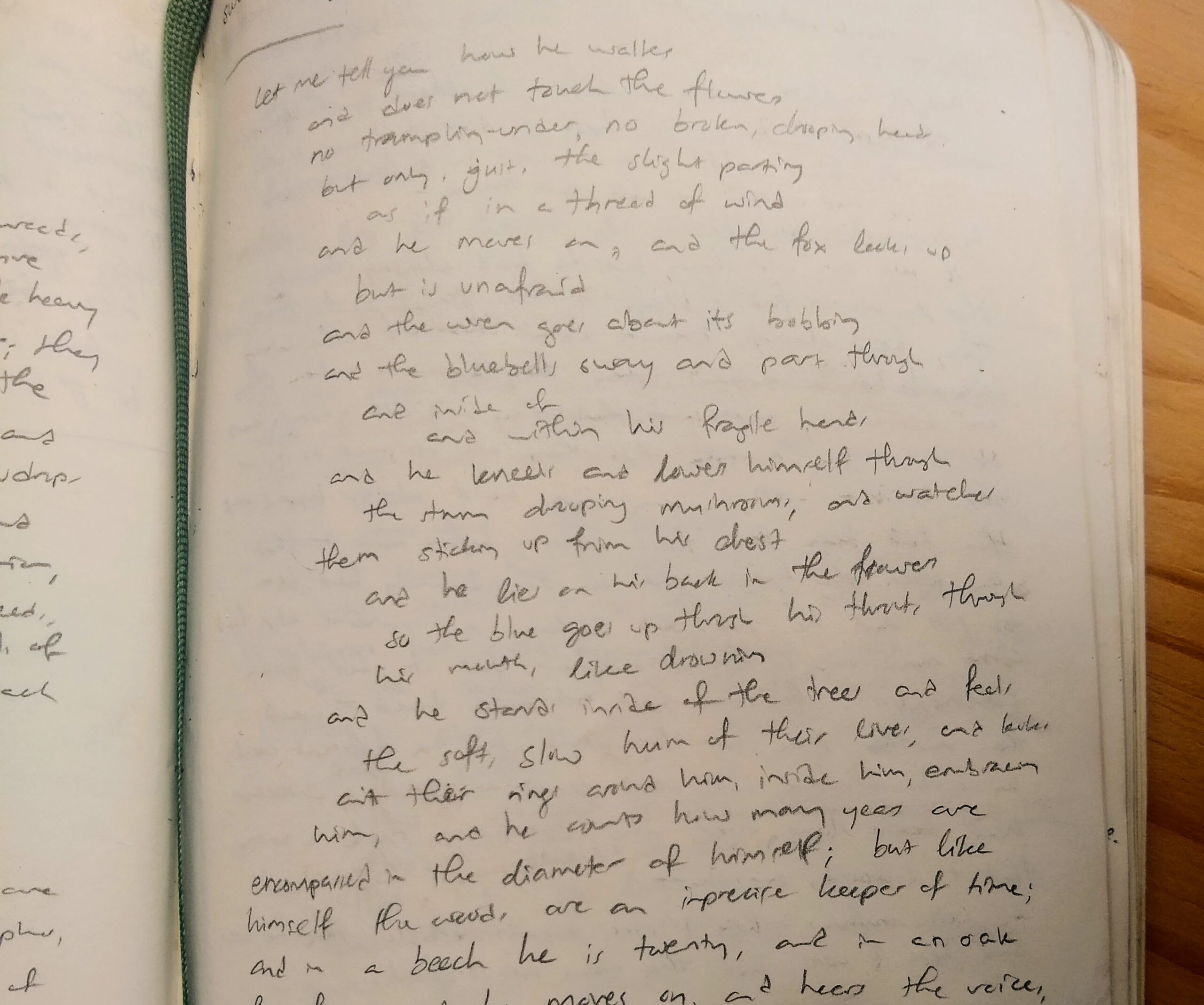Finding the Form with Nayani Jensen
By Nayani Jensen
Sometimes I’ll tinker with a poem for ages, and sometimes it arrives nearly whole, which was the case for Woodland Ghost.
It was written at the height of the pandemic—I was living in the UK, and attending a virtual writing workshop set in the local woodland, which had been closed for lockdown. I wanted to capture something about the fluid feeling of time at that point, and the melancholy of not-quite being part of a place. I write prose more often than poetry, and for me poetry often feels like a sketch—a little creative treat, usually with a single idea or image.

I always write poetry longhand first (and generally do the same for prose)—it feels freer, and even though I end up tinkering with the words, there’s something special about their first handwritten form. I was surprised, going back to my notebook, to realize how little the poem had changed from its earliest draft. I was dissatisfied with the original ending, and tried many options before realizing that a better ending was already there, floating around partway through the poem. I cut the final stanza, and rearranged the end. The rest of the poem remained nearly unchanged, aside from minor edits.
It’s sometimes embarrassing to accept that almost everything significant in a piece was created right at the start, and everything else has been miniscule adjustments. But it also reminded me of the value of revision—work where it often looks like nothing much is happening, but in which the entire piece becomes tighter and sharper and closer to its original intention.

Nayani Jensen is a writer and historian of science from Halifax, Nova Scotia. Initially a Mechanical Engineer, she received a Rhodes Scholarship and went on to study English Literature and History of Science at the University of Oxford. In both her academic and creative work, she is interested in interdisciplinary approaches to history, climate, and fiction. Her work has appeared in Augur Magazine, The ASH Oxford Journal, and on bus routes around Halifax as part of the Poetry in Motion project.
Photo by Aaron Burden on Unsplash

